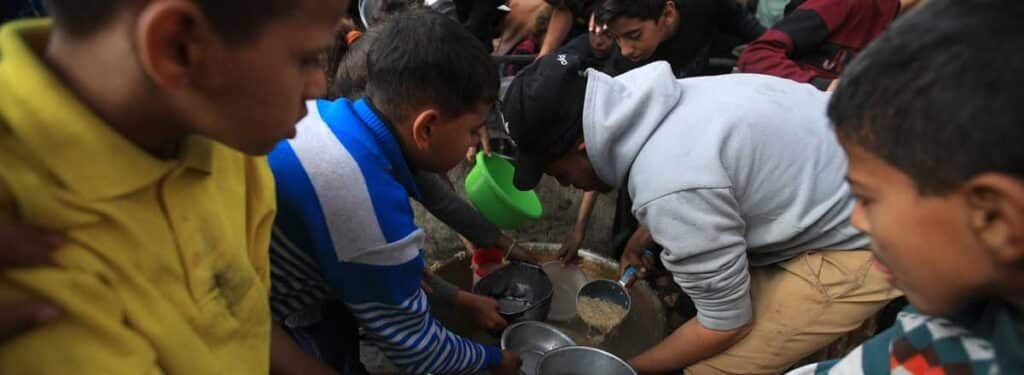B’Tselem: Israel is starving Gaza
Everyone in Gaza is going hungry. About 2.2 million people are surviving day by day on almost nothing, routinely going without meals. The desperate search for food is relentless, and usually unsuccessful, leaving the entire population – including babies, children, pregnant or nursing women and the elderly – hungry.

The hunger in Gaza is not a byproduct of the war but a direct result of Israel’s declared policy, says B’Tselem in its new position paper. Residents now depend entirely on food supplies from outside Gaza, as they can no longer produce almost any food themselves. Most cultivated fields have been destroyed, and accessing open areas during the war is dangerous in any case. Bakeries, factories and food warehouses have been bombed or shut down due to lack of basic supplies, fuel and electricity. Stockpiles in private homes, stores and warehouses have long since run out, leading family and social support networks that helped residents at the start of the war to collapse, too.
Yet Israel is deliberately denying the entry of enough food into Gaza to meet the population’s needs. Only a fraction of the amount of food entering before the war is now allowed in, with limitations on the types of goods, how they are brought in and how they are distributed within Gaza.
Israel can choose to change this reality. The images of children begging for food, people waiting in long lines for paltry handouts and hungry residents charging at aid trucks are already inconceivable. The horror is growing by the minute, and the danger of famine is real. Still, Israel persists in its policy.
Changing this policy is not just a moral obligation. Allowing food into the Gaza Strip is not an act of kindness but a positive obligation under international humanitarian law: starvation as a method of warfare is prohibited, and when a civilian population lacks what it needs to survive, parties to the conflict have a positive obligation to allow rapid and unimpeded passage of humanitarian aid – including food. These two rules are considered customary law and violating them constitutes a war crime under the Rome Statute of the International Criminal Court.
Click here to read the full report.

